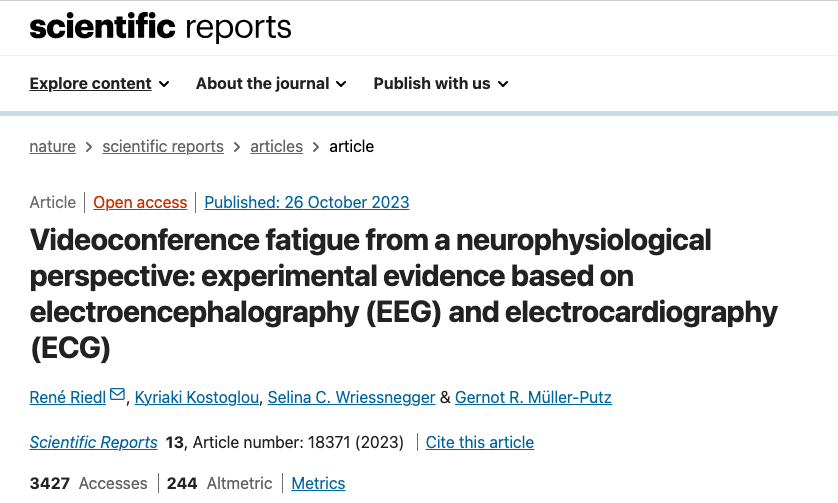The Wall Street Journal recently came out with an interesting article covering a study by Nature on the neurophysiological perspective of video conferencing in an academic environment.
As always, it is imperative to go straight to the primary source when such articles come out. The article by Nature is fascinating and highlights a few key points we must take into consideration.
🧠 This is the first study conducted with real scientific rigor, versus the self-reports we have relied on to date. Perhaps not surprisingly, the study supports self-reports: video conferences that are poorly run and trying to simply ‘replace’ in-person interactions cause pretty real fatigue.
🧠 Video conferencing fatigue (VCF) is defined as “somatic and cognitive exhaustion that is caused by the intensive and/or inappropriate use of videoconferencing tools”.
🧠 When comparing a virtual events in an academic environment to the same events conducted in person, the results are conclusive – the in-person version of the event was an energizer, the virtual version caused an overload in cognitive stress and led to a feeling of exhaustion.
🧠 The study also highlights a few important limitations:
- The scenario under study (an academic environment fueled by interaction and professor/student back and forth) is a specific type of communication event.
- The group was small, 35 people who had opted in to the study.
- The virtual experience was conducted in a controlled environment, not in a remote office set up
- There were no parameters around the actual skill the professor had in running the virtual event.
If we take the very definition of VCF itself, we notice a few critical key words being the ‘insensitive and or/inappropriate use’ of video.

As I have mentioned in the past, video is not an appropriate tool for everything. For some things, video can be extremely effective. For other things, like for instance, for academic sessions meant to be discussion and brainstorming based, video can be a drag unless you have a master facilitator. Which, we know is simply not the case with most university professors and educators on video.
There is a lot of nuance that must be taken into consideration in a study like this. I think the researchers did a great job in identifying the limitations to this relatively small study. What we must be wary of is other people’s tendencies to make snap judgements that are not accurate.
As with any study, the reader is left wondering….so what does this mean for me? I think the following quote in the conclusion section of the study answers this question succinctly:
“As it is unrealistic to recommend completely abstaining from the use of videoconferencing tools, the future study of effective countermeasures to reduce the fatigue and stress potential of videoconferencing will be critical for sustaining human well-being and health in an increasingly digital world.”
And in my opinion, this is where Virtual Sapiens comes in 😈.
